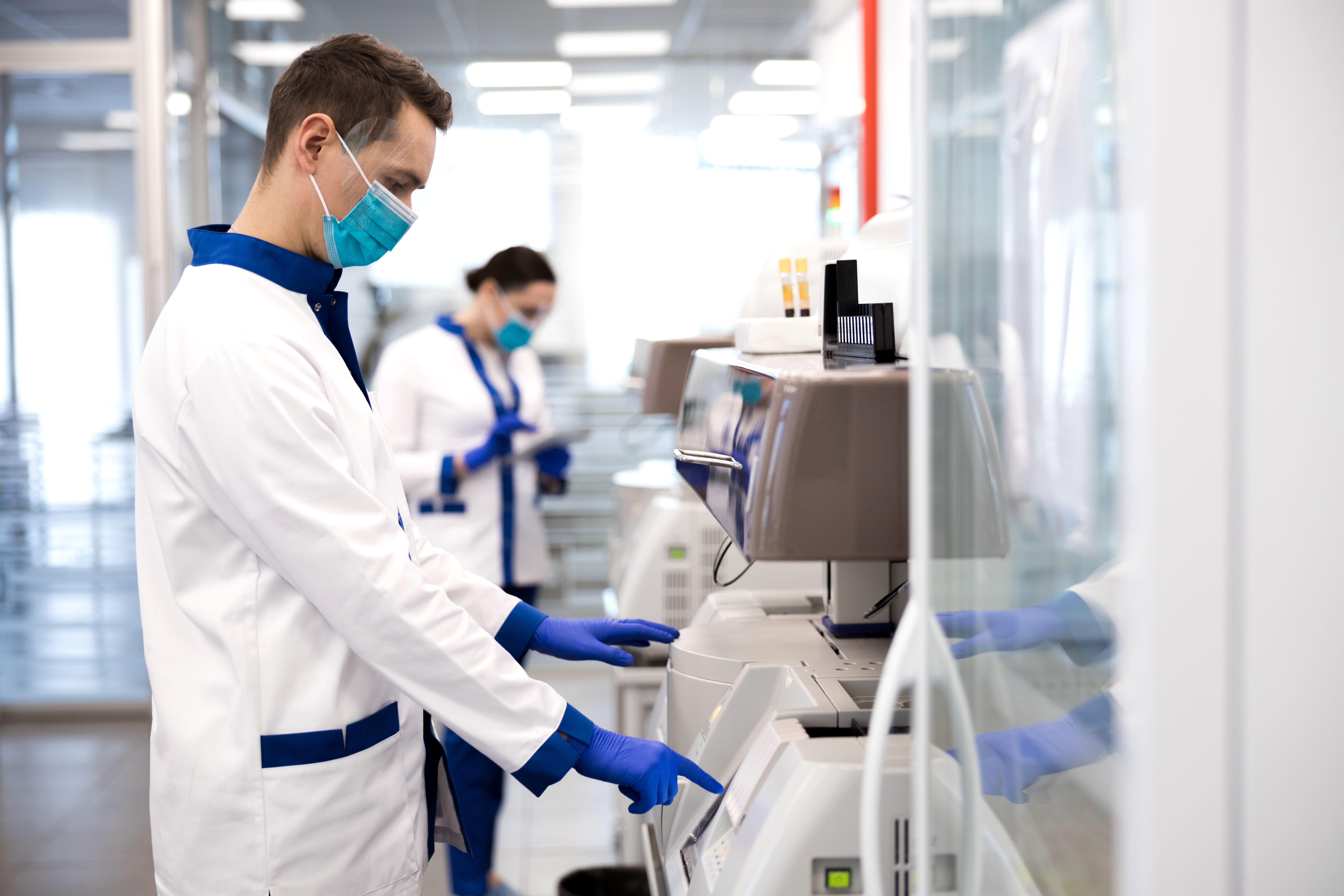Study finds veterinary diagnostic laboratories played crucial roles in COVID-19 response
The research showed the positive effects these facilities had on human health during the COVID-19 pandemic
Yakobchuk Olena/stock.adobe.com

According to a study conducted by researchers at the Cornell University College of Veterinary Medicine, veterinary diagnostic labs across the United States had a substantial positive effect on the health of humans during the COVID-19 pandemic. The paper was recently published in PLOS on June 25, 2024, and demonstrated the benefits of mobilizing these facilities for population-level testing as well as timely informed public health interventions.
“Many veterinary diagnostic laboratories continuously evaluate domestic and wild animal populations for evidence of disease, including diseases that affect humans. They were key in supporting the robust testing capacity necessary for public health agencies to respond to the pandemic,” said Lorin D. Warnick, DVM, PhD, the Austin O. Hooey dean of the College of Veterinary Medicine and senior author on the paper, in an organizational release.1
“We experienced this firsthand through the Cornell COVID-19 Testing Laboratory, established by our Animal Health Diagnostic Center in collaboration with Cayuga Health Systems, a human health care provider based in Ithaca, New York. This paper describes the work and impact of our laboratory and many others across the country,” he continued.
According to the release, as the need for severe acute respiratory syndrome Coronavirus 2 (SARs-CoV-2) testing increased within the United States, veterinary diagnostic labs filled the gaps. Some of these laboratories faced administrative obstacles when applying for the Clinical Laboratory Improvement Amendment (CLIA) certification that is needed for conducting human diagnostic testing. The huddles however showed the need to reduce these setbacks before the next public health emergency surfaces to enhance access to testing resources and improve population health.
The authors of the study sent survey invitations to 76 veterinary diagnostic laboratories that were conducting SARS-CoV-2 testing on animals and/or human samples. Out of the 76 surveys the team sent out, 50% responded with most of them operating within a university. Among the 24 laboratories conducting human SARS-CoV-2 testing, 58% did so for a university population, 29% for the general public, and 13% did testing for both. The researchers found through the survey cited that the most common reason for sample testing was to increase university testing capacity, followed by an increasing testing capacity for the local community, and then testing around time. Through the survey, researchers found that almost 8,250,000 human samples were tested by the laboratories that participated in the study.2
“More than 60% of human infectious diseases have a zoonotic origin, which underscores the urgent need to promote animal and human diagnostic collaboration under the One Health umbrella in preparation for future pandemics," explained Nia Clements, first author and public health graduate student.1
Some of the university testing programs offering testing services to nearby satellite campuses and institutions performed a massive portion of their state’s total tests. According to the release, 1 laboratory’s daily testing capacity of 18,000 samples corresponded to 20% of all daily testing completed in that state, and to an estimated 1.5–2.5% of all SARS-CoV-2 daily samples tested nationwide.2 A separate laboratory conducted a quarter of its state's total testing and tested 4 times as many SARS-CoV-2 samples as its state’s public health laboratory, and more than any other in the state.
Through its help during the COVID-19 pandemic, these contributions of veterinary diagnostic laboratories are a crucial example of One Health's importance. The authors of the study explained that the contributions and readily collaboration with the expertise of the veterinary community and diagnostic centers need to be recognized by human health agencies and federal regulators in the case of a new public health threat emerging.
“Ensuring we have swift, efficient mechanisms to respond to the next pandemic doesn’t necessarily mean creating those processes from scratch,” Warnick said. “A One Health perspective helps identify intersections between areas of expertise. It can help save lives, as the work of veterinary laboratory contributions to the COVID-19 response shows.”
Reference
- Study: Veterinary diagnostic labs played key role in COVID-19 response. News release. Cornell University College of Veterinary Medicine. July 17, 2024. Accessed July 23, 2024. https://www.vet.cornell.edu/about-us/news/study-veterinary-diagnostic-labs-played-key-role-covid-19-response
- Clements N, Diel DG, François Elvinger, Koretzky G, Siler J, Warnick LD. The role of veterinary diagnostic laboratories during COVID-19 response in the United States. PloS one. 2024;19(6):e0303019-e0303019. doi:https://doi.org/10.1371/journal.pone.0303019
Newsletter
From exam room tips to practice management insights, get trusted veterinary news delivered straight to your inbox—subscribe to dvm360.